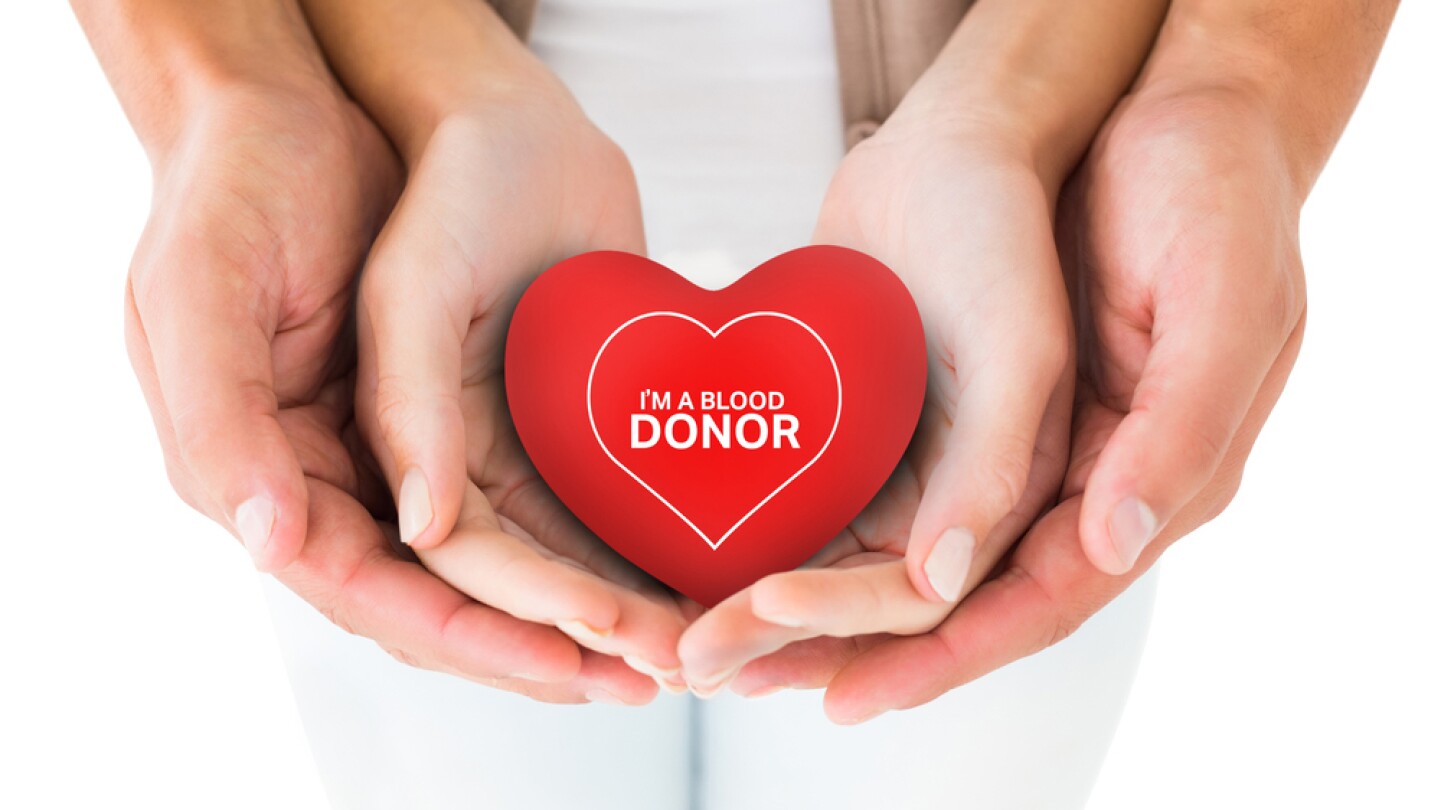Blood donation is a noble act that saves countless lives every year. However, not everyone is eligible to donate blood due to certain medical conditions or circumstances that could potentially harm the donor or the recipient. Understanding the disqualifications for blood donation is crucial to ensure the safety and well-being of all parties involved.
Infectious diseases are among the primary reasons for disqualification from blood donation. Individuals with HIV/AIDS, hepatitis B or C, malaria, Creutzfeldt-Jakob disease (CJD), or variant Creutzfeldt-Jakob disease (vCJD) are not permitted to donate blood, as these conditions can be transmitted through blood transfusions. Additionally, active bacterial or viral infections, such as tuberculosis, syphilis, and gonorrhea, can also disqualify individuals from donating blood. Even recent vaccinations for certain viruses may require a deferral period before blood donation to avoid potential side effects in recipients.
Donate blood what do you need

Donating blood is a simple yet profound act of generosity that can save lives. To ensure a safe and smooth donation process, there are certain requirements and preparations that donors should consider.
What should I do before donating blood?
Before donating blood, it’s essential to:
- Get adequate rest and stay hydrated
- Eat a nutritious meal, avoiding fatty foods
- Review your medical history and medications
- Bring a valid photo ID and donor card (if applicable)
What not to eat before donating blood?
To ensure a successful blood donation experience, it’s recommended to avoid certain foods before your appointment:
- Fatty or fried foods
- Dairy products (milk, cheese, yogurt)
- Alcohol
- Caffeine (coffee, tea, energy drinks)
Stick to a light, balanced meal with plenty of fluids to maintain optimal hydration levels.
What are the requirements to be a blood donor in my area?
While specific requirements may vary by location, most blood banks share common eligibility criteria:
- Age: Generally between 17 and 65 years old
- Weight: Meeting the minimum weight requirement (typically around 110 lbs or 50 kg)
- Health: Being in generally good health and free from certain medical conditions
- Travel history: No recent travel to areas with high risk of infectious diseases
It’s advisable to check with your local blood donation center for their specific requirements and guidelines.
What blood is needed for donation?
All blood types are valuable and potentially life-saving. However, some blood types are in higher demand due to their relative rarity or specific medical needs:
- O-negative: The universal blood type, compatible with all blood types
- O-positive: Also compatible with many blood types
- Rh-negative blood types (A-, B-, AB-, O-): Rarer and in high demand for certain medical procedures
Blood banks typically have ongoing campaigns to encourage donors with specific blood types to donate regularly.
Benefits of donating blood

Donating blood is not only a selfless act that helps save lives, but it also offers several benefits for the donor:
- Health Screening: Before donating, donors undergo a brief health screening, which can help detect potential health issues early.
- Reduce Risk of Cardiovascular Diseases: Regular blood donation can help remove excess iron from the body, lowering the risk of heart diseases.
- Weight Management: The process of donating blood can burn up to 650 calories.
- Emotional Satisfaction: Knowing that your donation can potentially save multiple lives can provide a sense of fulfillment and purpose.
- Free Health Check-up: Many blood donation centers offer free health check-ups, including blood pressure, pulse, and hemoglobin level checks.
Blood donation criteria for female
While the general blood donation criteria apply to both men and women, there are specific considerations for female donors:
- Iron Levels: Women are more prone to iron deficiency due to menstrual cycles, which can affect their eligibility to donate.
- Pregnancy: Pregnant women are typically deferred from donating blood until after delivery and a waiting period.
- Breastfeeding: Most blood banks defer breastfeeding mothers until their child is at least one year old or they have stopped breastfeeding.
It’s essential for female donors to disclose their menstrual history, pregnancy status, and any recent blood loss to ensure a safe donation experience.
How long does it take to donate blood for the first time
For first-time donors, the entire process of donating blood typically takes around 45 minutes to an hour. Here’s a breakdown of the steps involved:
- Registration: Filling out a brief questionnaire about medical history and lifestyle.
- Mini-Physical: Checking temperature, pulse, blood pressure, and hemoglobin levels.
- Blood Donation: The actual donation process, where whole blood or specific components are collected, takes approximately 8-12 minutes.
- Refreshments: After donating, donors are encouraged to rest and replenish fluids and snacks for 15-20 minutes.
It’s essential to allocate enough time for the process and follow post-donation instructions to ensure a smooth recovery.
Blood donation disqualifications
While the majority of healthy individuals can donate blood, certain medical conditions or circumstances may temporarily or permanently disqualify someone from donating. Here are some common disqualifications:
- Infectious Diseases: HIV/AIDS, hepatitis B and C, malaria, Creutzfeldt-Jakob disease (CJD), and variant Creutzfeldt-Jakob disease (vCJD) are grounds for permanent deferral.
- Recent Vaccinations: Live vaccines, such as those for measles, mumps, and rubella, may require a deferral period of several weeks before donating.
- Chronic Illnesses: Conditions like cancer, cardiovascular diseases, and autoimmune disorders may disqualify individuals, depending on their severity and treatment regimen.
- Medications: Certain prescription drugs, such as blood thinners or acne medications, can lead to temporary deferral.
- Travel History: Recent travel to areas with high risk of infectious diseases may result in a temporary deferral.
- Tattoos and Piercings: Most blood banks require a waiting period of several months after getting a new tattoo or piercing.
It’s crucial to disclose all relevant medical information and follow the guidelines provided by blood donation centers to ensure the safety of both donors and recipients.
After donating blood
After donating blood, it’s essential to take proper care of yourself to ensure a smooth recovery and prevent any potential complications. Here are some important considerations:
- Hydration: Drink plenty of fluids, such as water or juice, to replenish lost fluids and prevent dizziness or lightheadedness.
- Rest: Avoid strenuous activities or heavy lifting for the remainder of the day. Take it easy and allow your body to recover.
- Bandage Care: Keep the bandage on for at least a few hours to prevent bleeding or bruising at the donation site.
- Nutrition: Eat a balanced meal or snack, focusing on iron-rich foods like lean meats, leafy greens, and fortified cereals to replenish iron stores.
- Monitor for Adverse Reactions: If you experience prolonged dizziness, nausea, or any concerning symptoms, seek medical attention immediately.
Following these guidelines can help ensure a smooth recovery process and minimize potential risks or discomfort after donating blood.
How long does it take to recover
The recovery time after donating blood can vary from person to person, but most donors are back to their normal routine within a day or two. Here’s a general timeline for recovery:
- Immediately After Donation: It’s recommended to rest for 15-20 minutes and consume fluids and snacks provided by the blood donation center. This helps stabilize blood pressure and replenish fluids and nutrients.
- First 24 Hours: Avoid strenuous activities, heavy lifting, or consuming alcoholic beverages. Drink plenty of fluids and consume iron-rich foods to aid in recovery.
- 1-2 Days: Most donors feel fully recovered within 1-2 days after donating blood. However, some individuals may experience mild fatigue or dizziness for a slightly longer period.
- 1 Week: By the end of the first week, the body has typically replenished the donated blood volume and restored normal hemoglobin levels.
It’s important to listen to your body and take it easy if you experience any lingering symptoms. Proper rest, hydration, and nutrition can significantly aid in the recovery process.
Blood donation near me

Finding a convenient and reputable blood donation center near you is essential for making the donation process as seamless as possible. Here are some tips to locate a blood donation center in your area:
- Contact National Blood Services: Organizations like the American Red Cross or your country’s national blood service can provideinformation on local blood donation centers and upcoming donation events.
- Use Online Directories: Websites like BloodBanker or Blood Donors Network offer searchable databases of blood donation centers by location.
- Check Hospitals and Clinics: Many hospitals and medical clinics have partnerships with blood donation centers or host blood drives on-site.
- Mobile Blood Drives: Keep an eye out for mobile blood drives in your community, often organized by schools, workplaces, or community groups.
By finding a convenient location to donate blood, you can make a significant impact on those in need while also benefiting from the health advantages of regular blood donation.
Conclusion
In conclusion, donating blood is not only a selfless act that can save lives, but it also offers numerous health benefits to the donor. From reducing the risk of cardiovascular diseases to burning calories and providing emotional satisfaction, the act of blood donation has a positive impact on both the donor and the recipient.
It’s essential for eligible individuals to consider becoming regular blood donors to support their community and contribute to a greater cause. By understanding the process of blood donation, the criteria for eligibility, and the recovery process, potential donors can make informed decisions and ensure a safe and fulfilling donation experience.
Remember, every blood donation counts and has the potential to make a difference in someone’s life. So, if you meet the criteria and are able to donate, consider scheduling a donation appointment at a local blood donation center. Your generosity can truly be a lifesaving gift to those in need.
web3host.org
